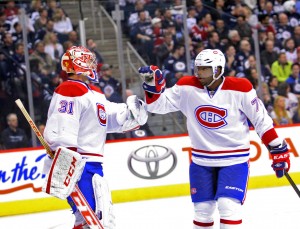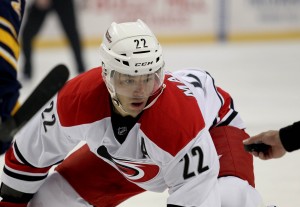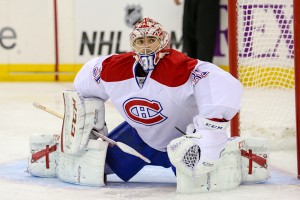
The first-place Montreal Canadiens lead the Atlantic Division as the NHL returns from its annual holiday hiatus, with many analysts and (non-Habs) fans alike questioning the legitimacy of the team’s bid for the Stanley Cup.
It’s easy to have doubts, seeing as Montreal holds the lowest amount of points relative to the other three division leaders and is No. 1 in their own by the slimmest of margins.
The Habs lead the second-place Tampa Bay Lightning by zero points (46 each), have less regulation and overtime wins (18 vs. 20), and are only ahead in the standings for the simple reason that Tampa has played one more game (36 vs. 35, giving Montreal a superior points percentage).
For these reasons and more, most experts (many of whom initially predicted the Boston Bruins would win the division) currently have Tampa as the favorite to come out of the Atlantic. However, there is a flipside to that argument, namely, if the Lightning are so great and the Habs not so much, why isn’t Tampa in first instead?
Here are the top five key stats behind Montreal’s success so far this 2014-15 season:
5) Five-on-Five Corsi For (50.1%)
Montreal is officially average in terms of puck possession.
Admittedly, that’s not the most impressive statement one can make about a given team. However, it’s the undeniable truth according to stats compiled by Stats.HockeyAnalysis.com. It’s also an improvement over last year, when the team was 26th in the league in terms of Corsi for (shot attempts) at five on five (46.7)… and made it all the way to the Eastern Conference Final.
The key here, though, is not that teams like the Chicago Blackhawks (first with 54.8%) or even Tampa (second with 53.7%) place ahead of the Habs by a sizeable margin. It’s that the god-awful Edmonton Oilers (50.3%) do as well.
Stats like Corsi are an indicator of future success. However, they’re not the be all and end all. They’re merely pieces of the puzzle and taken alone they may paint an inaccurate picture. Would the Habs ideally have higher puck possession? Of course, but they make up for their shortcomings in other ways.
4) Faceoffs (55.2%)

The Canadiens are first in the league in terms of their success rate at faceoffs (55.2%). It’s an impressive stat, with Manny Malhotra also leading the league with an incredible 62.4%. The next-highest player, Arizona Coyotes forward Martin Hanzal, has 58.6%. It’s all the more impressive when you factor in how the Habs were only 49.6% successful in the faceoff circle last season.
It just goes to show how great of a pick-up Malhotra, who makes just $850,000, was by general manager Marc Bergevin. The pick-up in turn goes to show how shrewd Bergevin can be and has been for the last little while, earning a nomination for GM of 2013-14.
There may not be a specific stat to measure successful management, but Bergevin, based on recent moves like getting rid of Rene Bourque and Travis Moen’s undesirable contracts, should be at the top of that one as well.
3) Winning Percentage when Scoring First (1.000)

Montreal also leads the league in one other category, being perfect whenever they manage to score first. Of course, “manage” is arguably the key word in the last sentence, as the Habs have only done so 12 times, which is tied for last in the NHL (with the Colorado Avalanche and Arizona Coyotes).
While Montreal can no doubt benefit from better starts, it’s a good sign that, whenever they’re able to get up for a game, they win. Of course, considering the amount of times they don’t score first, the number of wins they’ve earned after trailing first may actually be more impressive. They are third in that category (10).
2) Penalty Kill (86.3%)
Only one team (Pittsburgh Penguins) has a higher penalty-kill success rate than the Canadiens with more total time down (at least) a man.
Pittsburgh has a success rate of 86.8% with a total of 219:22 served on the penalty kill. Montreal’s total is 206:10. For comparative purposes, the Calgary Flames lead the league with over a full game less than Montreal (143:38).
There are a number of conclusions to be drawn from the above numbers. Sure, Montreal can stand to be more disciplined. More than that, though, just like last year the Habs are getting lights-out goaltending.
1) Team Save Percentage (.922)

Montreal Canadiens goaltender Carey Price (.926) placing directly behind Pittsburgh Penguins goalie Marc-Andre Fleury in save percentage would normally be a bad thing. After all, Fleury has a career regular-season save percentage of, I kid you not, .911.
This year, though, Fleury has been incredible, placing sixth in the league in that category (.929). And his six shutouts, compared to Price’s two, also serve as a decent argument that the latter has been even more consistent.
Canadiens back-up goalie Dustin Tokarski has also been very good (.914), combining to give the Habs the fourth-best team save percentage in the league. The Habs trail only Pittsburgh, Chicago, and the Nashville Predators there.
Generally speaking, that kind of goaltending is unsustainable, especially considering the amounts of shots Montreal gives up. However, as alluded to earlier, Price is in turn giving the Habs elite goaltending for the second straight season, hinting at the potential for long-term success with him in the crease.
There’s little denying the Habs have been getting their fair share of puck luck. Summing the team save and shooting (9.5%) percentages yields the fourth-best PDO in the league at 1.016, with the theory being that over the course of time that figure will regress back to 1.00.
While the average NHL shooting percentage is just below 9% (it is 8.9% so far this season), the good news is Montreal is the only team with a top-five PDO to have its shooting percentage below 10%.
The logic here is if Price is able to continue playing well, Montreal should be able to maintain some semblance of their early-season success moving forward. It’s definitely not guaranteed, but all the stats in this article seem to indicate it is at least probable.
As for those three teams above Montreal in terms of PDO? They are the Toronto Maple Leafs (1.027), Pittsburgh (1.026), and, oh, yes, Tampa (1.018).
To those naysayers who believe Tampa to be superior, they definitely can make a decent argument to that effect. It’s worth noting, though, that the Lightning have technically been “luckier” than the Habs. And, yet, they aren’t the ones leading the Atlantic right now. The Habs are.
You answer your own question …. “analysts” don’t like the Habs (it’s bias)…. they kind of hate them. Too many Cups in the glory years or something. Analysts have a penchant of copying the previous year’s picks ’till the come through.
Bruins enduring a biggish drop was pretty much a given, having lost some key cogs while others are in the twilights of their careers (Chara, Marchand, Lucic). The cap space crunch was always going to ding them.
TBay’s a good team, but they give up a few too many goals. We’re almost half way through the season and the Habs are ahead of them …. yet, it pains those analysts so much, that all they can say is the Habs don’t deserve to be where they are.
So much Malarkey. And so much with stats that are passe. The Habs strategy is not to own the puck just to cough it up. They’ll give it to the other team in opportune spots, and capitalize on turnovers. Other than that, the Habs will take the puck off face-offs, thank you, when the teams are split on the ice.
The Habs have the clutch play-off goaltender in Price, and pending another Krieder-attack, Price will the ace-man come play-offs. After that, the defense is deep and experienced. Defense (and goaltending) wins championships. They pick up their scorer rental come March (and hopefully he’ll pan out better than Vanek).
Thanks for the comment… I have to disagree in regard to Montreal’s defense. It may be experienced, but deep? Aside from Subban, who hasn’t played all that well this season, and maybe Markov, who will be another year older come the playoffs, Montreal really doesn’t have a gamebreaker. Part of the reason Montreal’s puck possession is relatively low (compared to other let’s say contenders) is an inherent inability to get the puck out of the zone (lack of proper defense) as well as an over-dependence on blocking shots (Therrien’s system). I believe Montreal is a legitimate contender, but they’re going to have do something about both if they want to win.